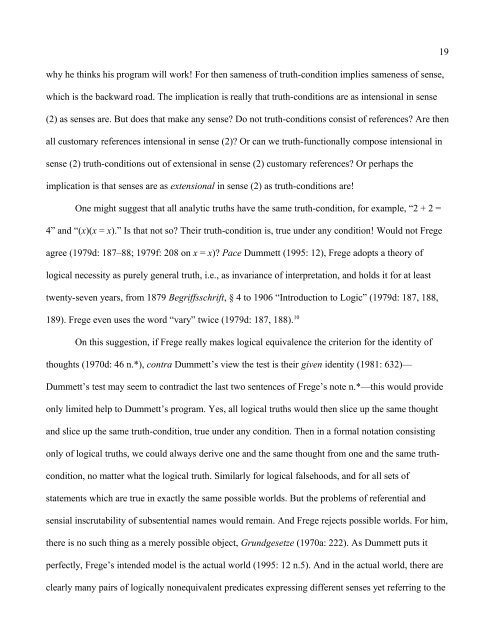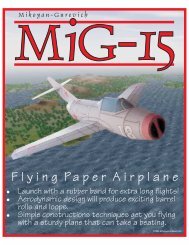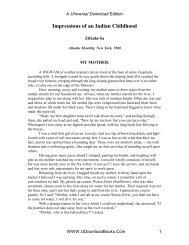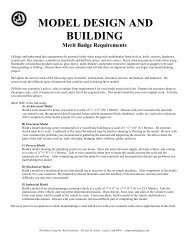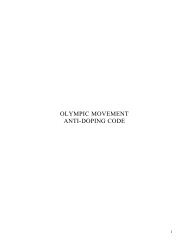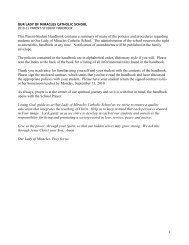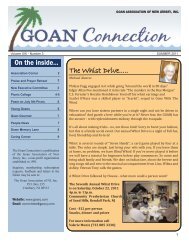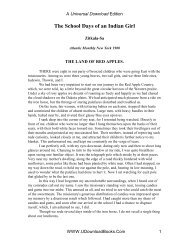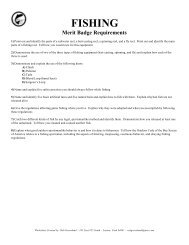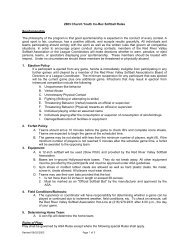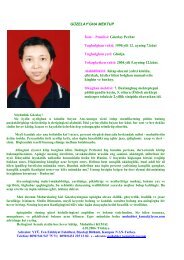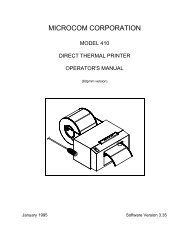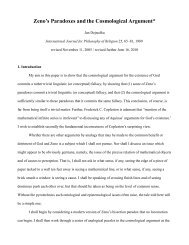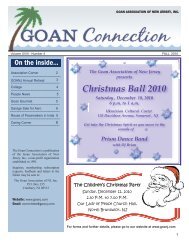Dummett's Backward Road to Frege and to Intuitionism - Tripod
Dummett's Backward Road to Frege and to Intuitionism - Tripod
Dummett's Backward Road to Frege and to Intuitionism - Tripod
Create successful ePaper yourself
Turn your PDF publications into a flip-book with our unique Google optimized e-Paper software.
why he thinks his program will work! For then sameness of truth-condition implies sameness of sense,<br />
which is the backward road. The implication is really that truth-conditions are as intensional in sense<br />
(2) as senses are. But does that make any sense? Do not truth-conditions consist of references? Are then<br />
all cus<strong>to</strong>mary references intensional in sense (2)? Or can we truth-functionally compose intensional in<br />
sense (2) truth-conditions out of extensional in sense (2) cus<strong>to</strong>mary references? Or perhaps the<br />
implication is that senses are as extensional in sense (2) as truth-conditions are!<br />
One might suggest that all analytic truths have the same truth-condition, for example, “2 + 2 =<br />
4” <strong>and</strong> “(x)(x = x).” Is that not so? Their truth-condition is, true under any condition! Would not <strong>Frege</strong><br />
agree (1979d: 187–88; 1979f: 208 on x = x)? Pace Dummett (1995: 12), <strong>Frege</strong> adopts a theory of<br />
logical necessity as purely general truth, i.e., as invariance of interpretation, <strong>and</strong> holds it for at least<br />
twenty-seven years, from 1879 Begriffsschrift, § 4 <strong>to</strong> 1906 “Introduction <strong>to</strong> Logic” (1979d: 187, 188,<br />
189). <strong>Frege</strong> even uses the word “vary” twice (1979d: 187, 188). 10<br />
On this suggestion, if <strong>Frege</strong> really makes logical equivalence the criterion for the identity of<br />
thoughts (1970d: 46 n.*), contra Dummett’s view the test is their given identity (1981: 632)—<br />
Dummett’s test may seem <strong>to</strong> contradict the last two sentences of <strong>Frege</strong>’s note n.*—this would provide<br />
only limited help <strong>to</strong> Dummett’s program. Yes, all logical truths would then slice up the same thought<br />
<strong>and</strong> slice up the same truth-condition, true under any condition. Then in a formal notation consisting<br />
only of logical truths, we could always derive one <strong>and</strong> the same thought from one <strong>and</strong> the same truth-<br />
condition, no matter what the logical truth. Similarly for logical falsehoods, <strong>and</strong> for all sets of<br />
statements which are true in exactly the same possible worlds. But the problems of referential <strong>and</strong><br />
sensial inscrutability of subsentential names would remain. And <strong>Frege</strong> rejects possible worlds. For him,<br />
there is no such thing as a merely possible object, Grundgesetze (1970a: 222). As Dummett puts it<br />
perfectly, <strong>Frege</strong>’s intended model is the actual world (1995: 12 n.5). And in the actual world, there are<br />
clearly many pairs of logically nonequivalent predicates expressing different senses yet referring <strong>to</strong> the<br />
19


